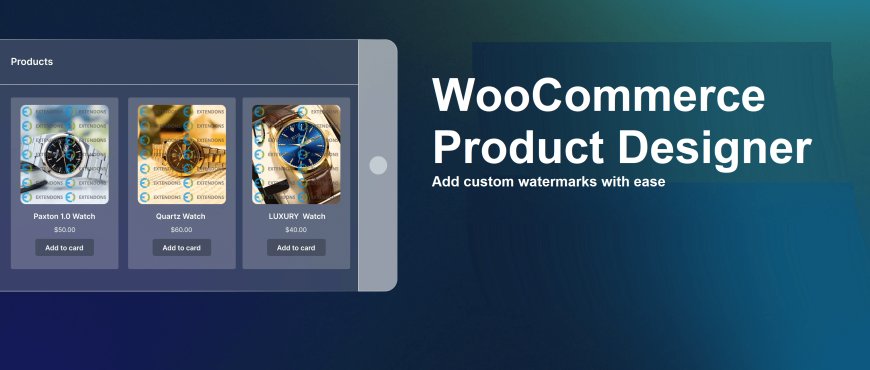The WooCommerce Product Designer: Do’s & Don’ts for a Better Experience
Make the most of your WooCommerce product designer by following these key do’s & don’ts. Avoid mistakes and customize like a pro.

So, you finally got yourself a WooCommerce product designer to spice up your store. Great choice! Whether you’re selling custom T-shirts, mugs, or phone cases, this tool gives your customers the freedom to personalize products to their liking. But wait—before you dive in headfirst, there are some things you gotta know.
Using a WooCommerce custom product designer can be a game-changer if done right, but trust me, it can also be a headache if you miss the basics. So, let’s go over the do’s and don’ts to make sure you and your customers have the best experience possible.
The Do’s: Set Yourself Up for Success
1. Do Choose a Reliable Plugin
Not all WooCommerce product designer plugins are created equal. Some work smoothly, while others lag, crash, or miss key features. If you’re serious about offering customization, pick a plugin that’s stable, fast, and packed with essential tools. Many users consider the Extendons product designer one of the best options because of its flexibility and ease of use.
2. Do Optimize for Mobile Users
People shop from their phones—a lot. If your WooCommerce custom product designer doesn’t function well on mobile devices, you’re losing sales. Always test the plugin on different screen sizes to make sure customers can easily design products, add text, upload images, and check previews without frustration.
3. Do Set Clear Design Guidelines
Customers love creative freedom, but not everything they upload is gonna work. Low-resolution images, weird aspect ratios, or inappropriate content can ruin the final product. Set clear guidelines on image quality, file types, and design dimensions so customers know exactly what’s acceptable.
4. Do Offer Pre-Designed Templates
Not everyone wants to start from scratch. Giving customers pre-made design templates can make the process easier and faster. This also helps ensure that designs stay within the quality standards you want for your store.
5. Do Test Your Checkout Process
Imagine spending time creating the perfect custom product, only to have the checkout process glitch. Yikes. Test your checkout to ensure that all design choices are saved properly and that there are no errors in finalizing orders.
The Don’ts: Avoid These Mistakes
1. Don’t Overcomplicate the Design Tool
More features don’t always mean better. If your WooCommerce product designer is too complex, customers will get frustrated and leave. Keep the interface clean, simple, and easy to navigate.
2. Don’t Ignore Load Speed
If your customization tool takes forever to load, you’re in trouble. People don’t have the patience to wait for laggy pages. Optimize images, use caching, and make sure your site can handle the extra load from a design tool.
3. Don’t Forget to Set Pricing Rules
Custom products can get tricky when it comes to pricing. Are you charging extra for complex designs, additional colors, or premium materials? Set up clear pricing rules so customers aren’t surprised at checkout.
4. Don’t Skip Customer Support
No matter how easy you make things, someone will have questions. Make sure you have a way for customers to get help, whether through live chat, a help center, or a detailed FAQ section.
5. Don’t Ignore SEO for Custom Products
Just because customers can design their own products doesn’t mean they’ll automatically find your store. Optimize your product pages, add keywords, and use SEO-friendly descriptions so people searching for custom items can discover your business.
Wrapping It Up
Using a WooCommerce product designer is a fantastic way to offer customization, attract more customers, and boost sales. But if you don’t set it up properly, it can also turn into a nightmare. Follow these do’s and don’ts, and you’ll avoid common pitfalls while creating an awesome shopping experience for your customers.
Customization should be fun, not frustrating. So, get the right plugin, keep things simple, and make sure everything runs smoothly. Happy designing!
What's Your Reaction?

























![Try Updated Dell EMC D-GAI-F-01 Exam Dumps: Ideal For Best Preparation [2024]](https://news.bangboxonline.com/uploads/images/202410/image_430x256_671f38c81c2a2.jpg)
